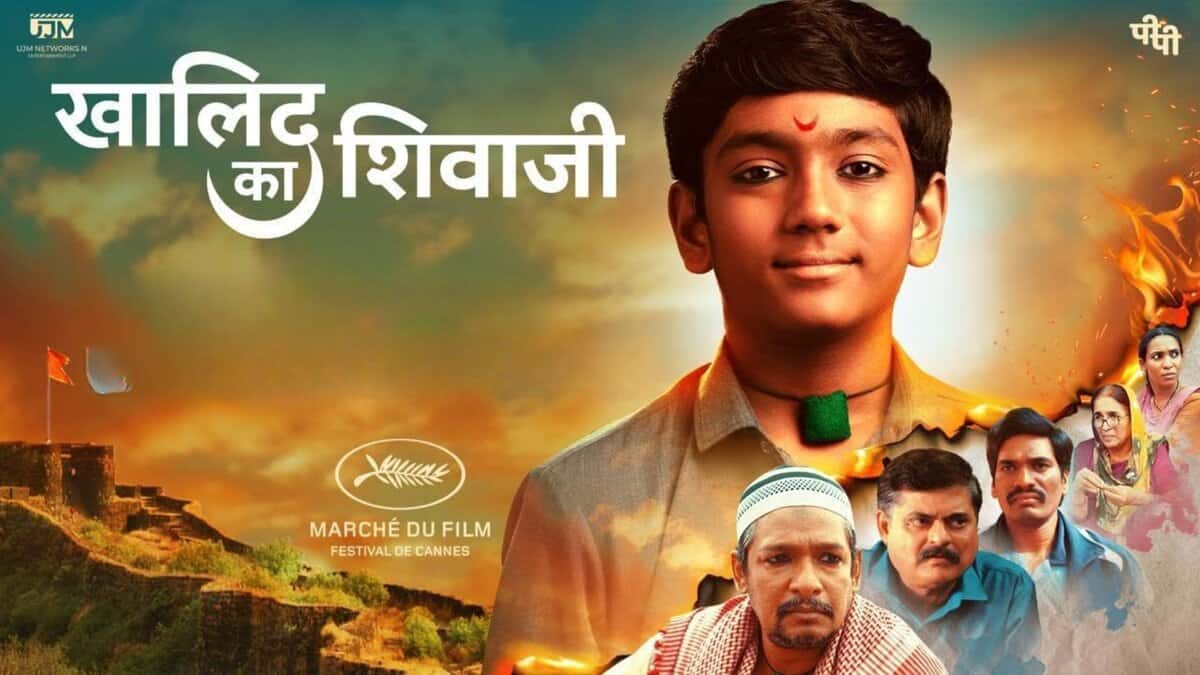
It was Ashish Shelar, Maharashtra’s minister for cultural affairs, who had announced that four Marathi movies would be screened at the Cannes Film Festival – Sthal, Snow Flower, Khalid Ka Shivaji, and Juna Furniture. That was on April 20, when he said ‘June Furniture’ had received a special slot. Now, all that, at least about ‘Khalid ka Shivaji’ has changed. Going by a “written complaint”, his ministry has asked the Central Information and Broadcasting Ministry to put the movie on hold. That is on August 5.
The center of the film is about a fifth-grade student in Vidarbha who, because he is a Muslim, is referred to by his classmates as Afzal Khan instead of Khalid, his real name. This “confuses” him and “isolates” him from his peers. He keeps asking questions of this kind in his innocence and even wonders, according to a blurb on a platform which books cinema tickets. Was “every Muslim is an enemy of Shivaji Maharaj like Afzal Khan (was)?”
The trailer and this blurb, and the bits in the complaints, is what is in the public domain as of now. it could possibly be a movie of some significant import. It is directed by Raj Pritam More, the winner of the 2019 National Film Award for his Khissa, also in Marathi, in the category of Best Debut Non-Feature Film Director. It is said to be based on a real-life event. Marathi films for the past decade and more have been thought-provoking, exploring human nature and social norms, most of them tender and sensitively portrayed.
The complaint is about an allegation that “certain dialogue in the said film related to Chhatrapati Shivaji Maharaj is factually incorrect and likely to hurt public sentiments.” This, the letter cited by the Indian Express, concedes was after “viewing the trailer”. At the State Film Awards functions the other day, there were protests “demanding a ban on the film and deletion of controversial dialogues.” There was “apprehension that exhibition of the film in its present form” may lead to law-and-order issues.
In effect, the department’s minister, who exulted at the recognition the four Marathi movies, including Khalid ka Shivaji, received, made a U-turn because the complaints came from Hindutva elements. The department would not have retreated without the involvement of the minister to take a public stance, including asking that the movie be subjected to a “re-examination by the film certification board. Officials are only in tandem with the politicians heading it, in this case, a BJP leader who is a minister.
The protagonist, who learns about Shivaji and seeks answers because his classmates call him Afzal Khan, The boy takes inspiration from the Maratha ruler’s conduct and philosophy. When he asks his grandmother why Afzal Khan was killed, the response he gets is “he must have done something wrong.” The objectors see this as inadequate and a misrepresentation because Afzal Khan had come to kill the Chhatrapati, and it was not explicitly stated.
About the Muslims in his army, the Right Wing is asking the basis on which the movie says that about a third or a tad more of it comprised Muslims. On what basis was this arrived at? Likewise, what are the grounds on which there was a reference to 11 Muslims being his bodyguards and that a mosque was built on the Raigad fort for the community? There has been a dispute about the mosque ever being built on the fort, and it remains unsettled as of now.
Curiously, this issue of Muslim soldiers and bodyguards should arise now, though it is known that the Maratha emperor had a long list of trusted generals who were Muslims. Do numbers matter? By raising these issues by seeing only a 2.3-minute trailer? The minister did not offer or organise a special screening to the RW, of which, of course, he is a part, so that the context could be understood before coming to a decision, or in this case, buckling under.
We are unsure yet if any dialogues were excised or scenes were asked to be cut before the certification. What a movie conveys in its entirety is different from what a trailer conveys in about two minutes. The context does not come out clearly, and what is objected to may be irrelevant if seen in full. However, that is how the object-anyway approach works, going by the random items in a package put together. The film certification board perhaps hasn’t had time to react or is unwilling to plough into any controversy.
The letter of August 5 to the Centre may have been due to the haste with which the state government seeks a response because the film’s scheduled screening was (this) Friday, August 8. Routing the request to the board, which would take its routine steps for a review – the letter asks for a “re-examination” – and time lost. Protestors normally are impatient. The state government is expecting a clear and quick response, which again would be on the basis of only a trailer. Would the moviemakers be asked to just postpone the release till such time the process leads to a decision one way or the other?


